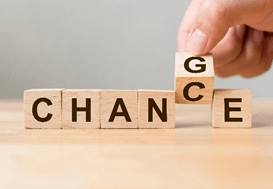
“...With today's signing of the landmark Americans for Disabilities Act, every man, woman, and child with a disability can now pass through once-closed doors into a bright new era of equality, independence, and freedom... America welcomes into the mainstream of life all of our fellow citizens with disabilities. We embrace you for your abilities and for your disabilities, for our similarities and indeed for our differences, for your past courage and your future dreams,” said the late president George H. W. Bush at the signing of the Americans with Disabilities Act in 1990.
In an ideal world, every person with a disability would have such protections no matter where they live, but regrettably, that’s not the case. The sad truth is that in many countries around the world, there are factors that are forcing many people with disabilities, especially children, to live as second-class citizens. One of the primary causes is a lack of financial resources and social support, making it hard for parents to raise and care for a child with cognitive and/or physical disabilities. Oftentimes, the next best option is to place the child in an orphanage or another institution that is supposedly designed to take care of them. According to writer Naomi Larsson from The Guardian, “up to eight million children live in orphanages across the world, despite more than 90% having at least one living parent.” (Larsson, 2018). These staggering statistics challenge the traditional notion that orphanages are for orphans, for they show that in fact many of these children have been abandoned for one reason or another by their living parents.
– Naomi Larsson, Writer and Subeditor, The Guardian
In addition to the aforementioned financial hardships and lack of social support that push parents to place their children with disabilities into orphanages or institutions, stigma stemming from cultural beliefs make the problem even worse. From family pressure to discrimination in society, children with disabilities, who can undoubtedly be considered one of society’s most vulnerable groups, are robbed of their future. Those who are not fortunate enough to be placed in an orphanage, even though living in an orphanage can hardly be considered fortunate, can end up being killed in extreme cases. In Kenya, for instance, “stigma is such that disabled children are known to have been killed in some communities – a practice that still occurs. Almost 40% of women . . . who live in Nairobi said they had been pressured by their community or relatives to kill their disabled child. This rose to 54% of mothers living in rural areas” (Larsson, Stigma pushes disabled children into 'dangerous' Kenyan orphanages, 2018).
All in all, research has consistently shown that orphanages are less than ideal environments for children. In a Thomson Reuters article titled “Most children in orphanages are not orphans,” journalist Emma Batha explains that living in an orphanage negatively impacts “children’s social, emotional, and cognitive development” and makes them “10 times more likely to fall into sex work than their peers and 500 times more likely to take their own lives, and it also “quadruples the risk of sexual violence” (Batha, 2018).
In many countries, activists and human rights organizations are not only doing their best to improve the lives of people with disabilities, but they are also calling on governments to combat the stigma around the subject matter and to take measures that would give these people a path out of orphanages and institutions. “In today’s Russia, some 13 million people live with disabilities... With the help of more accessible infrastructure and efforts by independent groups to support inclusive health care, schools, workplaces, and recreation, many have begun to rightfully live fuller lives” said researcher Andrea Mazzarino (Mazzarino, 2018). Although progress is being made in most countries, there is still a lot of work to do.
The World Forgotten Children Foundation (WFCF) and other brave organizations are continuously fighting for the rights of people with disabilities. They tirelessly work to raise awareness about all the various issues that are affecting the lives of millions of children, especially those with disabilities who are forced to live in orphanages or institutions.
As the late President Bush said at the conclusion of his address, “Let the shameful wall of exclusion finally come tumbling down”.
Sources
Batha, E. (2018, November 14). Most Children in Orphanages Are Not Orphans. Retrieved from Thomson Reuters Foundation News: http://news.trust.org/item/20181114025819-qqbtx/
Larsson, N. (2018, September 26). Out of sight: the orphanages where disabled children are abandoned . Retrieved from The Guardian: https://www.theguardian.com/global-development-professionals-network/2016/sep/26/orphanage-locked-up-disabled-children-lumos-dri-human-rights
Larsson, N. (2018, November 20). Stigma pushes disabled children into 'dangerous' Kenyan orphanages. Retrieved from The Guardian: https://www.theguardian.com/global-development/2018/nov/20/stigma-pushes-disabled-children-into-dangerous-kenyan-orphanages?CMP=twt_gu
Mazzarino, A. (2018, October 11). Time to End Stigma Around Disabilities in Russia. Retrieved from Human Rights Watch: https://www.hrw.org/news/2018/10/11/time-end-stigma-around-disabilities-russia


